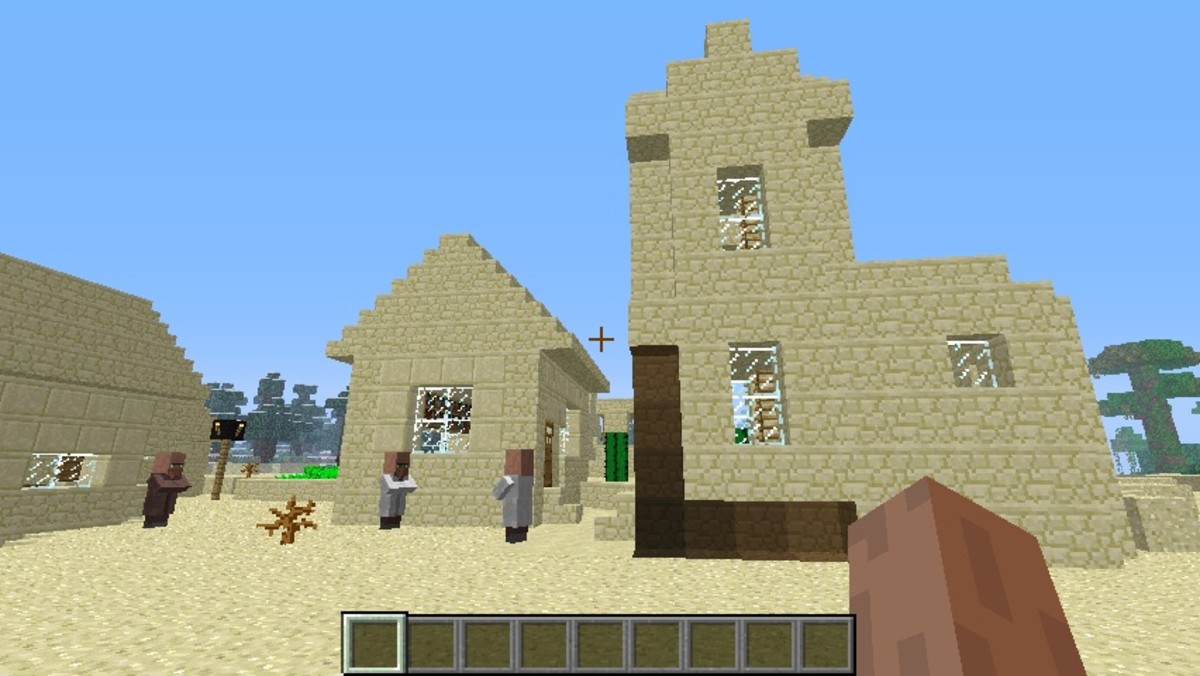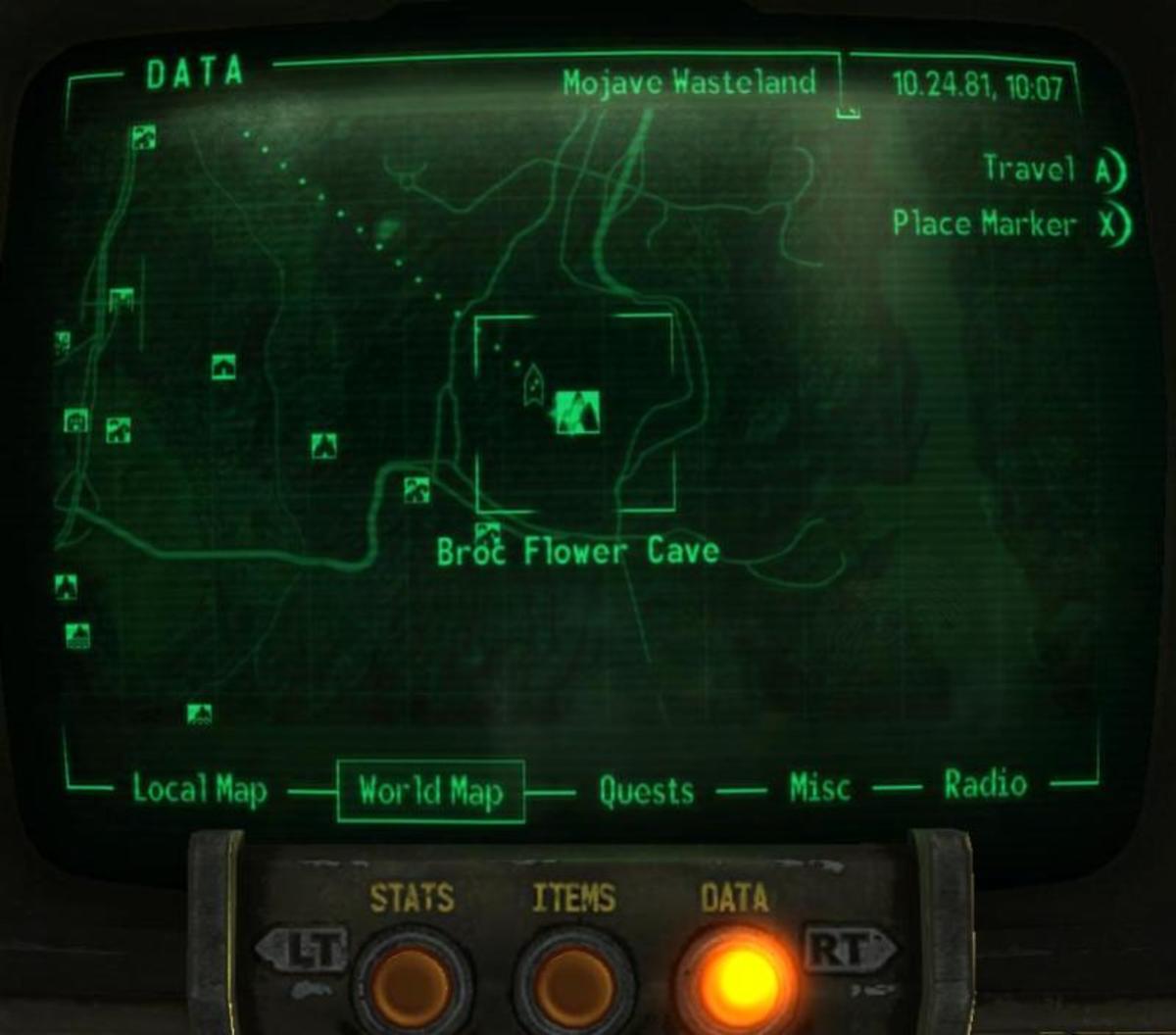Bridging the Gap Between Single-Player and Multiplayer
There is little doubt that online gaming is one of this gaming generation’s defining characteristics and achievements. Even though online gaming has been around as early as 1996 with Quake on the PC and started with consoles on the original Xbox and Playstation 2 with a few games, it was hardly a major feature nor a core component to those few that used the internet. While online capabilities isn't the newest trick for games, it certainly landed in the forefront of the community because of the improvements of technology. When I was growing up in 90’s, playing a game with other people required work of getting people into the same room at the same time to play the likes of Bomberman, Secret of Mana, GoldenEye, and even the original Halo. But now I can turn on Borderlands 2, Halo 4, Street Fighter 4, Mass Effect 3, Left 4 Dead (1 or 2) or even an old Call of Duty game at any hour and still find people playing the game. However, the success and acclaim of Halo, and subsequently the annual Call of Duty, changed the market.
Publishers saw multiplayer as the moneymaker and no one can unring the bell. This isn't console limited either, as many companies and studios try to replicate World of Warcraft’s monstrous success. But even with these examples of enormous profit and fandom, the number of developers who attempt to replicate it more often do not thrive. Strictly single-player games become rarer each year. Some of this is due to avoid used copies floating around the marketplace, where the money does not go to the developers and publishers. Sometimes the call for multiplayer doesn't come from inside the industry but from fans, as is the case with many fans complaining about how they want to play Skyrim online with their friends. In response to these market demands, many try to incorporate the multiplayer into their game, or , in Bethesda’s case, create an MMORPG. Sometimes this leads to it being shoehorned into the game which leads to all sorts of debacles, delays, and disappointments.

I am not trying to decry the increase of multiplayer games or complain about the agitating success of Call of Duty. I play and enjoy multiplayer games just as I play and enjoy single-player games. For every game this generation that I feel crammed in multiplayer I could probably name a game that slapped together a single player campaign for its multiplayer. However, there are games that brilliantly meld the two experiences into one by including the connectivity of online gaming with the single-player structure. These games blur the difference between Multiplayer Mode and Single Player Campaigns, proving that the two are not mutually exclusive, but also successful critically and monetarily.
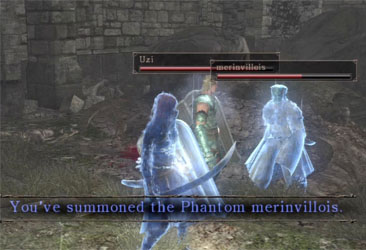
Demon's Souls and Dark Souls
From Software deserve some serious credit for imagining and developing the multiplayer mechanics in their two Souls games (and presumably Dark Souls 2). Essentially these games are single-player action rpgs a majority of the time. But because it makes use of the many people playing the game, it allows for players to leave written messages as hints, warnings, or complaints for other players (or more devious ideas). In a way, the separate, individual players contribute to create a communal knowledge and effort in overcoming the game (like a forum but inside the game itself). Also, players can invade another person’s game to wreak havoc, feeding those that feel the need to dominate other players (sadly that can occur to hapless players, though I assume all players should expect it). And a player can summon other willing players into their own game to enjoy jolly cooperation throughout most of the game (usually for boss fights). It is simple, elegant, and brilliant.
You don’t always need the assistance of another player, as I beat Dark Souls the first time summoning an NPC phantom for one boss fight. Each player enjoys their own singular journey through much of the game, experiencing it alone. Sometimes the predictable and static experience is interrupted by another (jerk) player invading your game to duel you, complicating an already challenging game. But because the game makes use of the internet, and the connectivity that accompanies it, the player is never truly alone, either through the indirect assistance of placed messages or the direct impact of summoned players. Also the unpredictable invasions of other players, though rarely welcome, reinforces the notion that the player is not the only living and thinking creature in the game world. Just because it is a single player game does not mean it should occur in a vacuum. These games bridge the gap between single-player and multiplayer experience by combining the two into one, allowing the individual to contribute to community of players. In a way it operates more like a neighborhood, where everyone has their own lawn and house to enjoy themselves in, but can help build fences or throw barbeques.
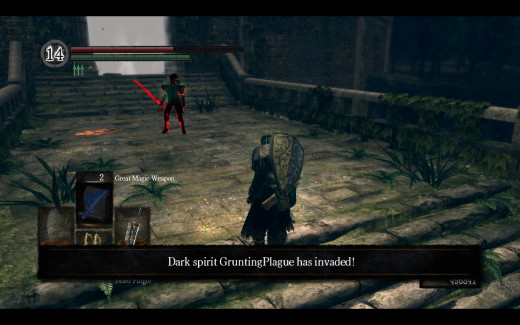
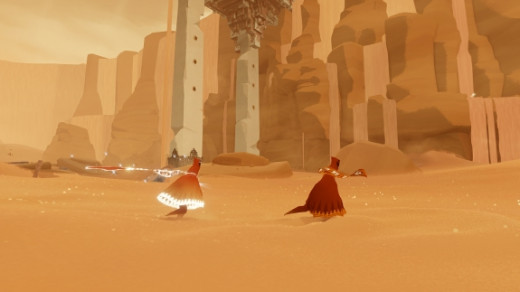
Playstation’s indie hit Journey deserves a nod for utilizing a similar mechanic. Journey, like the Souls games, makes use of individual simultaneous players. Usually the game pairs a new player with someone who has already beaten the game and is replaying it. The veteran is there to assist the new player through the game, indicating safe areas and secrets. Also players can energize one another, which helps deal with some of the challenges. While I did enjoy the camaraderie in the vast, lonely world of the game, I did not enjoy being shown how to overcome each obstacle. Part of the enjoyment in playing games is overcoming the challenges set before you. But with how Journey is designed, I felt a little cheated by the game’s design of essentially handing someone who knew how to get through everything. It isn’t a huge complaint, since I did enjoy playing it and being goofy with my various companions, but it does cheapen the challenge a little. Also, I guess the game might lean more towards interactive paintings than actual platformer challenges, given the game’s undeniable beauty but obvious lack of difficulty.
Also, ZombieU makes use of a message system similar to Demon’s Souls and Dark Souls. I don’t have firsthand, or secondhand, experience with the game (or system), but from what I’ve read it does something similar. I enjoy hearing about this because it means that developers are taking note of different approaches and willing. On the negative end, too much copycatting can turn an innovation into a gimmick.
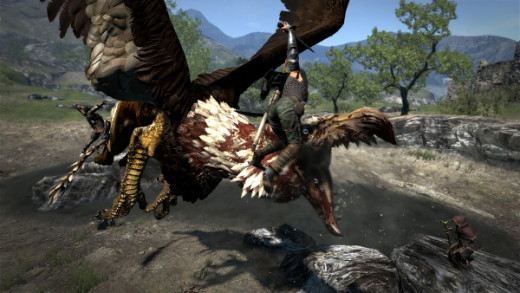
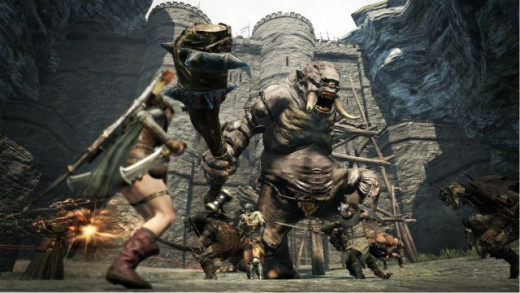
Dragon's Dogma
At its core, Dragon’s Dogma is an open world action rpg that enhances the standard Hack’n’Slash combat by mixing the formula up with regular, large enemies that require Shadow of the Colossus type climbing and killing. Aside from expanding combat to new horizons (or verticals, to be precise), the composition of the group deserves just as much attention as the combat advancements. The game fills two of four group slots: your own personally created Hero and a personally created Pawn (NPC that you can give rudimentary commands and direct control over how they level up). This leaves two open slots in your adventuring party that need filling, and here is where the game includes other players: to fill these slots, you summon other player’s Pawns into your group (while other players can summon your Pawn into their game).
Here again we see individual players enjoying their own solo experience, but relying on other players to progress through the game. Also, since summoned Pawns do not gain experience points as you and your Pawn level up, they remain the same level with the same gear as when you summoned them, meaning that a player needs to switch out Pawns with some regularity. The player needs to fill the combat hole(s) left by his own hero and pawn. And because of Dragon’s Dogma’s steep difficulty curve, you need to make sure the Summoned Pawns are up to caliber with you since one weak pawn, or one that doesn't seem to work properly with your group, makes adventuring and fighting considerable harder. While you’re looking for a Mage with a healing spell, someone else is looking for your Fighter to take the brunt of attacks. Although your Pawn does not acquire numeric experience in other players’ game, they do acquire knowledge about enemies and treasure while in other players’ game. This way, your Pawn learns better strategies to fight various monsters and the location of better loot. In essence, everyone wins with this system.
This exchange of Pawns, in my mind, is an extension of trading Pokémon. The game makes use of all the different players and not only allows for people to exchange resources, but requires it. Each player gives to and takes from the online community, but no one truly loses anything. While you enjoy your own adventure as the Arisen, so are plenty of other people and the game utilizes that population to create a different kind of experience and use involving online gaming. Each single player has an indirect relationship with the other people playing the same game, but still relies on each other and their decision making to create characters that fill voids in their own adventuring party. Again, this creates a different kind of experience that isn't Single-player exclusive nor are there wasted resources to create a completely different mode of the game. As in From Software’s Souls games, the interconnectivity of insular players is a core aspect of the game. There is no hustle and bustle with hundreds or thousands or more of players as is found in MMOs and each person experiences their own exclusive adventure at their own pace. The game even makes use of this metagame concept by admitting to the fact that there are an infinite alternate realities, explaining where Pawns come from with an in-game explanation for a game defining mechanic. The final dungeon even seems knock the player over the head with the concept of the infinite alternate realities that are all similar to your own. That combined with the sheer number of Pawns available to recruit emphasizes the number of other people playing the same game as you.
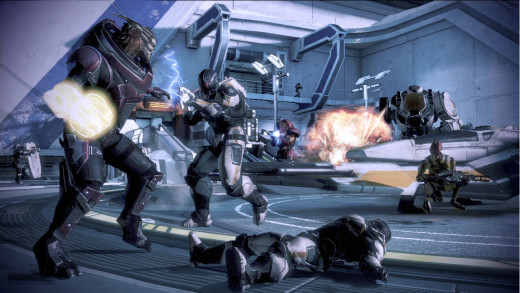
Mass Effect 3
Was multiplayer necessary? No, not really. It never crossed my mind that I wanted to enjoy the Mass Effect universe with anyone but myself.
Is it good? Well, that is debatable. Yes, it is just Horde Mode: Mass Effect, and that’s what I like about it. I know I enjoy Mass Effect 3’s combat design and the multiplayer allows me indulge in that. Honestly, when I beat the game first time, my immediate reaction to the ending was “well, at least it’s got good multiplayer.”
But all of that aside, I find how Mass Effect relates the multiplayer to it's single-player core refreshing and interesting. Unlike most games, where the multiplayer mode occurs in a vacuum that does not connect to the single-player Campaign of the game, Mass Effect multiplayer places the players in the war against the Reapers. The player becomes one of the many unsung heroes on the front-lines of the game’s conflict. Honestly, if it ever made sense to suddenly put a multiplayer mode into a previously, strictly single-player series, Mass Effect 3 has that going for it. The multiplayer allows the player to escape Shepard’s narrative and be part of the greater war effort. While the logical set up for the addition is nice, so is the connectivity between the multiplayer and single-player modes, furthering how the two do not occur separate of each other and work together.
Keeping in mind that the multiplayer is the same war that Shepard is trying to win, success in the multiplayer is meant to be victories in your Commander’s galaxy. The individual victories impact The Galactic Readiness for the grand stand against the Reapers while character classes can be promoted and get added to your War assets, further supporting Commander Shepard’s narrative. In this sense, the multiplayer is not merely a separate horde mode to just keep shooting enemies, but is a natural extension of the game’s core struggle where victory in it carries a direct impact on the triumph of the single-player campaign. At least in theory it should, but there is also a secondary edge with the Multiplayer. In order to get the “best endings” you need to have as many of your War Assets going into the final battle as possible, which means Theater’s of War need a high victory percentage which basically means that you need to play multiplayer to keep those percentages up. Although Bioware and EA say that you don’t need to play the multiplayer to get the “best endings,” I fail to see a way to do so. There isn’t a way strictly through Shepard’s story to keep the Galactic Readiness high nor gather enough War Assets so the lack of a high readiness rate is negligible. This dependency does kind of kill the nature of the interaction between the two modes. Dark Souls doesn’t require the player to invade other player’s world to progress through the game or unlock the “true ending” of the story (though there are some powerful Pact rewards for it, but those are bonuses and not essential). Dragon's Dogma doesn't require the player to have summoned so many other pawns before progressing.
No matter what your opinion is of the ending, the nature of the game’s final sequence renders all the gathering of War Assets and struggling to keep the Galactic Readiness high somewhat pointless. While I love the idea of what the multiplayer should do, but I find it rather poorly executed. The fault doesn’t rest on the fault the multiplayer design. Honestly, it’s almost like Resident Evil's Mercenaries Mode, speaking in a strictly continued game play nature.
How the multiplayer assists the single-player campaign is something I can live with if more and more games “need” some kind of multiplayer to exist or be made (Also that it is cooperative and not competitive player versus player). I can also live with multiplayer additions so long as the game does not require me to play multiplayer to unlock crucial elements of the main game.
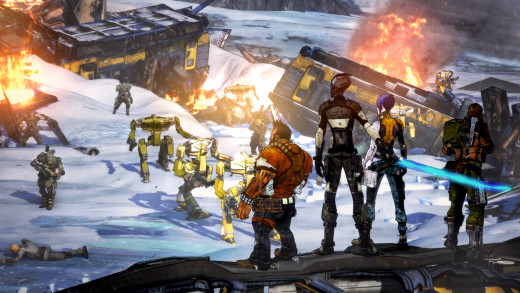
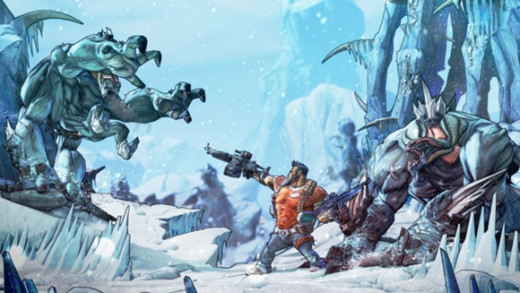
Borderlands 1 & 2
Despite all the guns and shooting in the Borderlands games, the games have more in common with the Hack’n’Slash RPGs than it does with First Person Shooters, specifically Diablo 2.
Almost every facet of the Borderlands games lends itself to cooperative play, and is more fun with other people. However, the game is still fully enjoyable alone and it does not punish the player for playing alone, unlike many other cooperative games. Most Cooperative games like Resident Evil 5 & 6, Lord of the Rings: War in the North, Army of Two, even Left 4 Dead, are built around at least two characters and if there isn’t a player to occupy each character, the game gives you an ally AI that is not nearly as effective or useful as a decent player. With this Required AI ally, the game’s main premise falls fairly flat, especially when you cannot issue any kind of command to the AI. You cannot strategize with that AI ally, and they tend to make any personal planning almost moot with odd quirks resulting from their programming.
None of these problems exist in Borderlands. Either you play with someone else, or the game is a solo experience. No Computer Controlled ally that take your cover, or gets killed too much, waste ammo and other resources. The games with the Ally AI loses its “cooperative” elements as the ally AI does not really want to play specifically with you. I remember Secret Of Mana on the Super Nintendo being more agitating by myself than with others, but at least I could directly command the characters when to use spells. However, in Left 4 Dead 2, I cannot tell Coach to stop trying to heal me, nor in Resident Evil 5 can I tell Sheva to cover me while I snipe (or tell her to snipe). The cooperative elements, if they remain, become more obtuse instead of intricate and enriching.
Instead Borderlands rewards players for playing together by giving them more enemies to fight and more loot to get from those enemies. It combines the two ideas of single-player and multiplayer the same way that many Hack’n’Slash RPGs did, in a specific way, almost identical to how Diablo 1 and 2 handled multiplayer. All Borderlands did was use guns instead of swords. You just want to experience all the adventure and action but don’t want to join random people? Gearbox took that into account since the games can stand on itheir own as a single-player experience. If you have up to three friends, well the game just gets crazier for you and you have someone to share the laughs with.
Another of the great features of this kind of style is that it uses small groups and does not put everyone in the same “world” at all times, like an MMO. Honestly, I wish this is what Bethesda had done in response to the cries of multiplayer in the Elder Scroll games instead of the MMORPG. Perhaps that is personal bias, but I’d rather play a game with my friends or a few people instead of being part huge world/conflict. The small group would lend itself to a more filled out world, which would lend itself to exploring. In an MMO, it’s hard to think that you’re finding something new if you know there are at least a few hundred other people running around the world at the same time as you. But everything feels fresh and new if you and you’re friends are the only adventurers crawling in the game’s various dungeons.
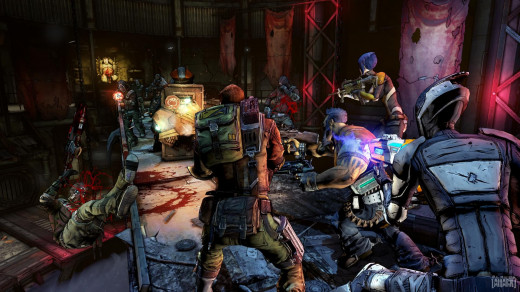
It's Something Different
These games prove that a multiplayer mode does not need to be a competitive player versus player deathmatch royal scenario. Instead they prove that the internet can be used to bring players together in a different fashion for different kinds of games while still retaining the unhampered experience of a single-player campaign. The games also prove that this kind of multiplayer experiment and experience is not only possible but also successful. Borderlands and the Souls games are not merely niche games but triumphs in in the market and with critics. Dragon’s Dogma set some impressive sale records for Capcom too. No longer is the multiplayer market chained to the Halo or Call of Duty methodology of deathmatch, but now open to all kinds of interesting ideas that players can share.
On the other hand, I don’t want ever developer trying to fit some kind of player connectivity into their game too just because it’s worked for other studios. It needs to be a core aspect, not just a quick idea since that's what created the overabundance of poor multiplayer modes. Nor I don’t want single-player games to disappear (though probably won't).
Also, I think Bethesda deserves some commendation for producing Dishonored and not forcing multiplayer or any other unwanted elements. Not to take anything away from Arkane for making it. But seriously, people really like to hypothesize how EA ruined Bioware, but no one wants to say thank you to Bethesda for not interfering with Dishonored. So thank you, Bethesda.

